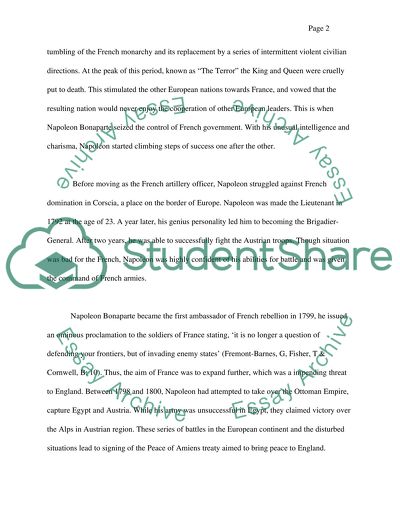Cite this document
(Analysis of Napoleonic War Period Term Paper Example | Topics and Well Written Essays - 2250 words, n.d.)
Analysis of Napoleonic War Period Term Paper Example | Topics and Well Written Essays - 2250 words. Retrieved from https://studentshare.org/history/1554204-napoleonic-war
Analysis of Napoleonic War Period Term Paper Example | Topics and Well Written Essays - 2250 words. Retrieved from https://studentshare.org/history/1554204-napoleonic-war
(Analysis of Napoleonic War Period Term Paper Example | Topics and Well Written Essays - 2250 Words)
Analysis of Napoleonic War Period Term Paper Example | Topics and Well Written Essays - 2250 Words. https://studentshare.org/history/1554204-napoleonic-war.
Analysis of Napoleonic War Period Term Paper Example | Topics and Well Written Essays - 2250 Words. https://studentshare.org/history/1554204-napoleonic-war.
“Analysis of Napoleonic War Period Term Paper Example | Topics and Well Written Essays - 2250 Words”. https://studentshare.org/history/1554204-napoleonic-war.


